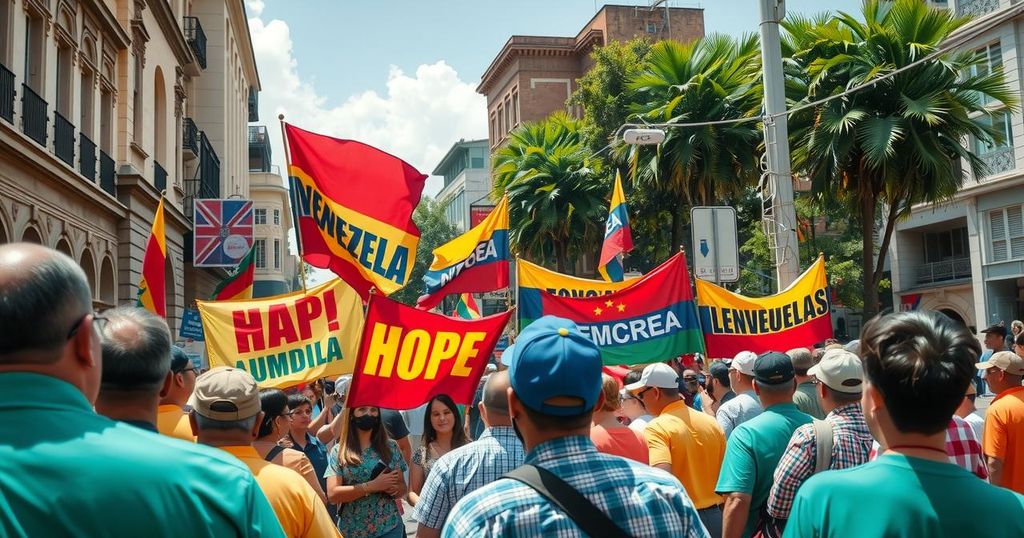The Venezuelan-American community, through IVAC, is organizing a caravan to Washington D.C. on March 25 to emphasize the dangers posed by Nicolás Maduro’s regime. They aim to deliver 545 letters to Congress, detailing risks associated with drug trafficking and terrorist connections while advocating for a U.S. response focused on national security.
Members of the Venezuelan-American community are mobilizing to underscore the perceived threats posed by Nicolás Maduro’s regime to the United States. The civic organization IVAC is organizing its fourth caravan to Washington, D.C., advocating that Maduro’s criminal network represents a significant risk to American security, set to take place on March 25.
During the caravan, participants intend to deliver 545 letters to members of Congress and the Senate. These documents articulate the struggles faced by Venezuelans under Maduro’s governance and outline the ongoing dangers posed to the United States. “Maduro’s cartel isn’t just a problem for Venezuela—it’s a danger to America,” asserted IVAC head Eduardo Ackerman, emphasizing the urgency for U.S. lawmakers to recognize the situation.
IVAC contends that the Venezuelan government is a facilitator for international criminal activities affecting the U.S. They cite several concerning points: Venezuela’s role in drug trafficking as a nexus for cocaine smuggling into the U.S.; connections with terrorist groups like Hezbollah and Hamas; increasing Chinese and Russian influence; passport fraud related to Iranians; infiltration of migrant flows by criminal organizations; and the acquisition of drone warfare capabilities by the regime.
Ackerman remarked, “This is not just a humanitarian crisis. It is a national security crisis.” Previous IVAC caravans have successfully garnered attention from U.S. lawmakers, including representatives from Florida. This upcoming caravan broadens its reach, with participants traveling from 21 different cities across the nation to deliver their advocacy directly to legislators.
IVAC has a track record of liaising with U.S. policymakers, having previously advocated for sanctions against Maduro’s regime. They assert that the current U.S. response is inadequate. Ackerman referenced Secretary of State Marco Rubio’s sentiment, stating, “All options should be on the table,” regarding the necessary actions to address the situation.
The organization argues that ousting Maduro would facilitate Venezuela’s return to democracy and undermine Cuba and Nicaragua’s influence. Ackerman emphasized their long-term ambition to position Venezuela as an economic ally to the U.S. With approximately 650,000 eligible Venezuelan American voters, IVAC stresses the importance of political engagement.
Their message to Congress is explicit: supporting the removal of Maduro transcends foreign policy; it pertains to national security. “We don’t want American soldiers fighting in Venezuela. We want a strong, strategic response to eliminate this threat,” Ackerman concluded. The March 25 caravan is poised to make a significant impact on Capitol Hill, advocating for the protection of both Venezuelans and American interests.
The Venezuelan-American community, led by IVAC, is mobilizing to alert U.S. lawmakers regarding the threats posed by Nicolás Maduro’s regime. With organized efforts to deliver actionable letters and engage directly with legislators, the community emphasizes the security implications of the Venezuelan crisis. Their advocacy aims not only for humanitarian relief but also for a strategic response to safeguard American interests, advocating for the removal of Maduro as a necessary step.
Original Source: www.inkl.com




